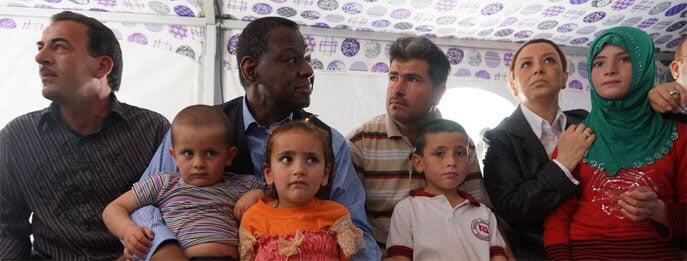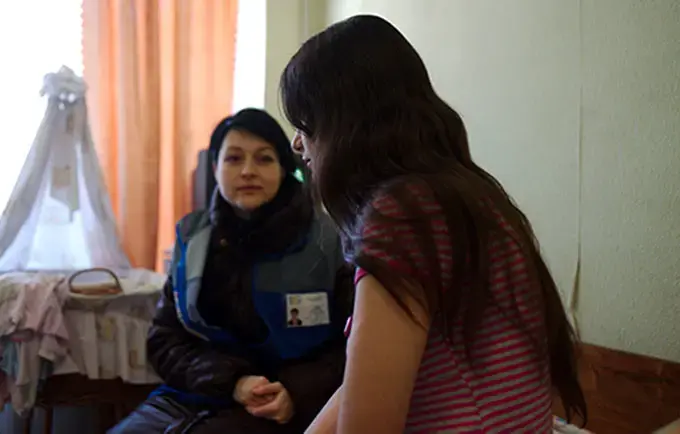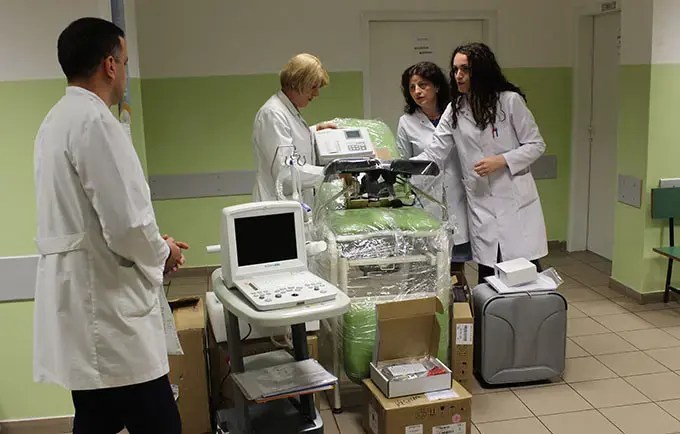AMMAN - The international community should urgently increase its support to refugees and displaced persons fleeing the Syrian crisis, Dr. Babatunde Osotimehin, Executive Director of UNFPA, the United Nations Population Fund, said, following visits to Syrian refugee camps in Turkey and Jordan.
“It is heartening to see the open-door policy of Syria’s neighbouring countries,” said Dr. Osotimehin. “But we are concerned that, with the number of refugees steadily increasing, the economies of host countries will be affected. The international community will need to step up.”
There are currently more than 1.3 million registered refugees in Turkey, Jordan, Lebanon, Iraq and Egypt. The majority are living in host communities, outside of camp settings, which is putting strains on local services. In excess of 6.5 million people also need humanitarian assistance inside Syria, including 4.3 million internally displaced persons. UNFPA is providing life-saving reproductive health services across the region, including within Syria.
In Jordan, Dr. Osotimehin visited Za’atri Camp, which hosts more than 120,000 refugees and where UNFPA runs two reproductive health clinics and three safe spaces for women and youth. Together with Jean-Louis De Brouwer, the Director of the European Commission’s humanitarian aid agency (ECHO), Dr. Osotimehin inaugurated UNFPA’s clinic and women’s centre in the camp’s latest extension.
“What struck me is the composition of the camp,” said Dr. Osotimehin. “It is clear that there is a majority of women and children, and these demographics define our work.” UNFPA’s clinics provide antenatal, delivery and postnatal care while also offering family planning services. It is estimated that there are currently more than 3,000 pregnant women in the camp. Nearly 300 women also attend awareness sessions each day in UNFPA’s safe spaces, where they discuss how to prevent and counter gender-based violence. Psychosocial counselling is provided to women, youth and adolescents as well as men, in groups or individually. Since the beginning of 2013, there have been 350 self-reported cases of gender-based violence in camps and communities, which have received life-saving services from UNFPA’s partners. Young refugees are also being trained by UNFPA to work with other young people within their communities to raise awareness about reproductive health issues and help prevent child marriage and human trafficking.
Dr. Osotimehin and Mr. De Brouwer also discussed the importance of building the resilience of communities that are hosting refugees. There are currently more than 400,000 refugees in Jordan and it is estimated that they will reach 1.2 million by the end of 2013. UNFPA has 9 clinics and 3 mobile teams within communities and at two other refugee sites.
In Turkey, Dr. Osotimehin met with women and youth in Nizip Camp, which hosts nearly 14,000 Syrians and is fully operated by the Turkish Government. “I am impressed with what I have seen in terms of logistics, health care and services,” he said. “It is clear that the Government of Turkey and its people have not only invested money, but also care.” UNFPA has trained health-care providers to respond to refugees’ reproductive health needs and provided 40,000 dignity kits containing hygienic items, such as sanitary pads and soap. An additional 20,000 kits will soon be distributed, but it is estimated that 400,000 kits are necessary for Turkey’s refugee population of over 200,000 people.
“Moving forward, we will need to expand our services and mobilize resources to protect women and girls and to provide for their needs,” Dr. Osotimehin explained. UNFPA, along with other United Nations agencies, will urgently require additional funds to continue responding to the crisis. More than $30 million will be necessary in the coming year for UNFPA to continue its work throughout the region, including in Syria. “But no matter how much we provide for the refugees, the problem is that this will never be home,” he noted, adding, “we need to reach a quick and peaceful solution to the conflict in Syria.”
For more information, please contact:
Mandy Kibel: Tel: +1 212 297 5293; kibel@unfpa.org
Alexandra Sicotte-Levesque: Tel: +1 917 310 8219; sicotte-levesque@ufnpa.org





